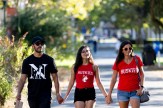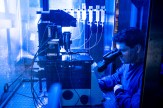Piano practice offers this international student a small slice of home
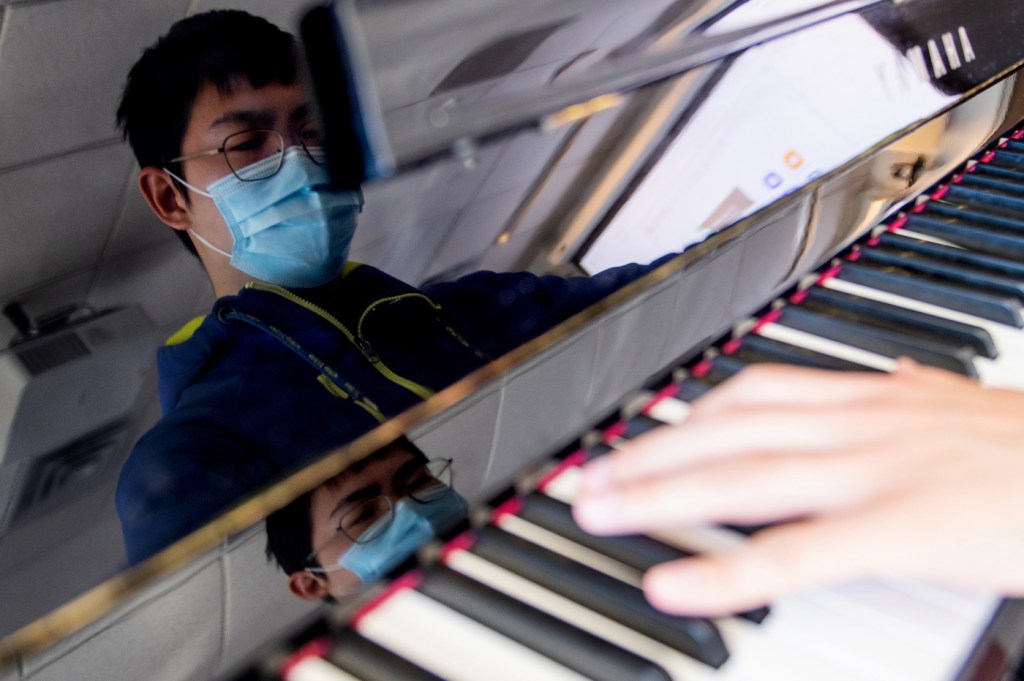
When 20-year-old Yuehao Gao gets a chance to practice on one of several pianos tucked into Ryder Hall’s music classrooms, he usually likes a challenge.
He might try Hungarian composer Franz Liszt’s jaunty “La Campanella,” a notoriously difficult piece that demands dexterity. Or perhaps a lesser-known sonata by Franz Joseph Haydn, or something entirely different like “Paradise,” by Coldplay.
No matter the melody, the practice always helps the native of Beijing feel a little less homesick.
“The times when the pianos weren’t available were hard for me,” says Gao, who has not been home in two years. “When all of our classes were remote, it was very isolating.”
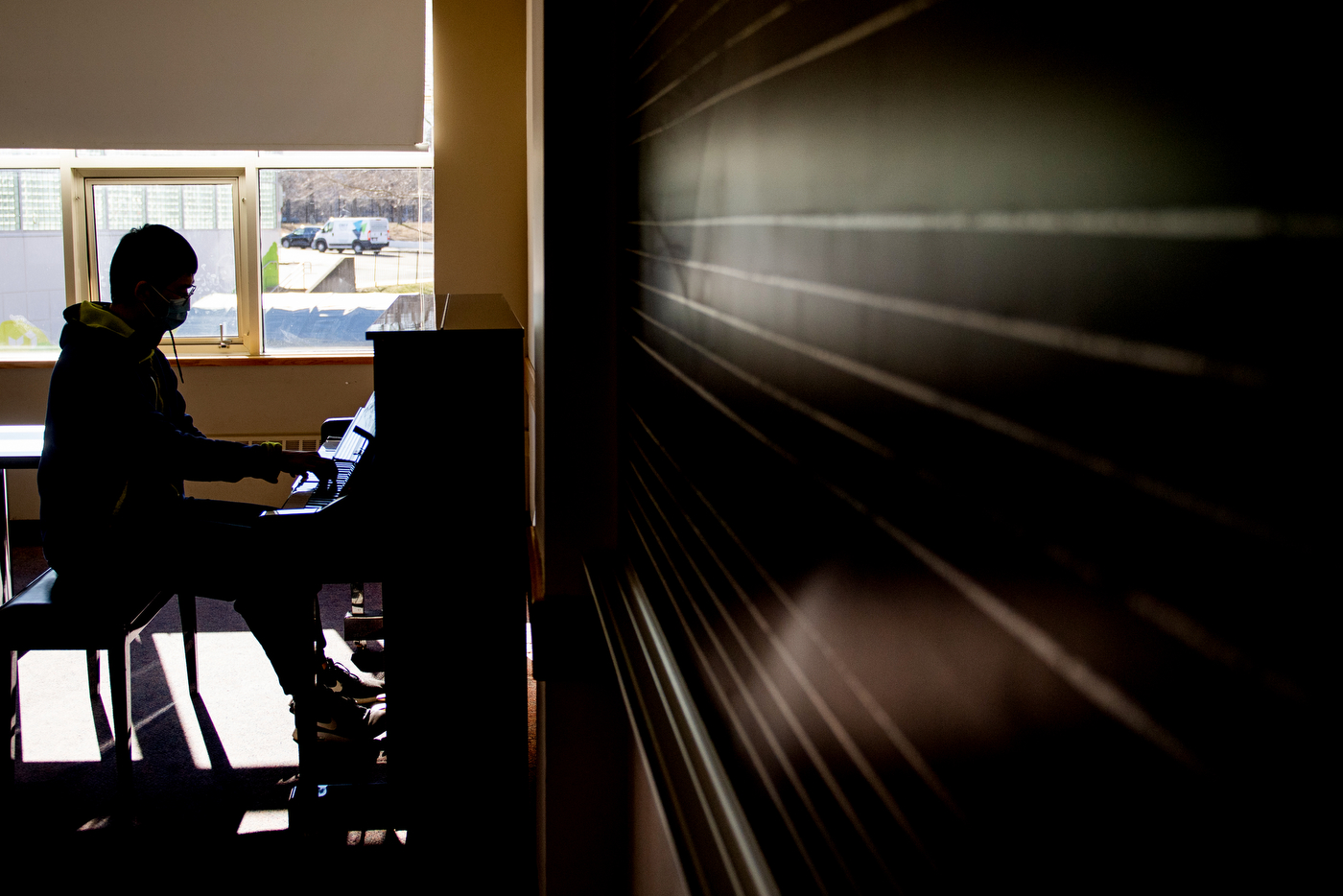
Northeastern briefly moved to all-remote learning last spring as health officials scrambled to stop the spread of COVID-19. Classes reopened last fall after the university adopted a rigorous testing schedule and a roster of campus-wide safety protocols.
Gao is one of more than 13,000 international students attending Northeastern, a group that faced an added level of uncertainty during the first few months of the pandemic. Federal officials had originally moved to force international students to return home if they were attending only remote classes, but Gao and others were able to stay in the U.S. because the university adopted Hybrid NUflex, which combines in-person and online learning.
“I prefer having classes in person. I get a much stronger sense of involvement,” says Gao. “It’s really the best way to meet people and socialize.”
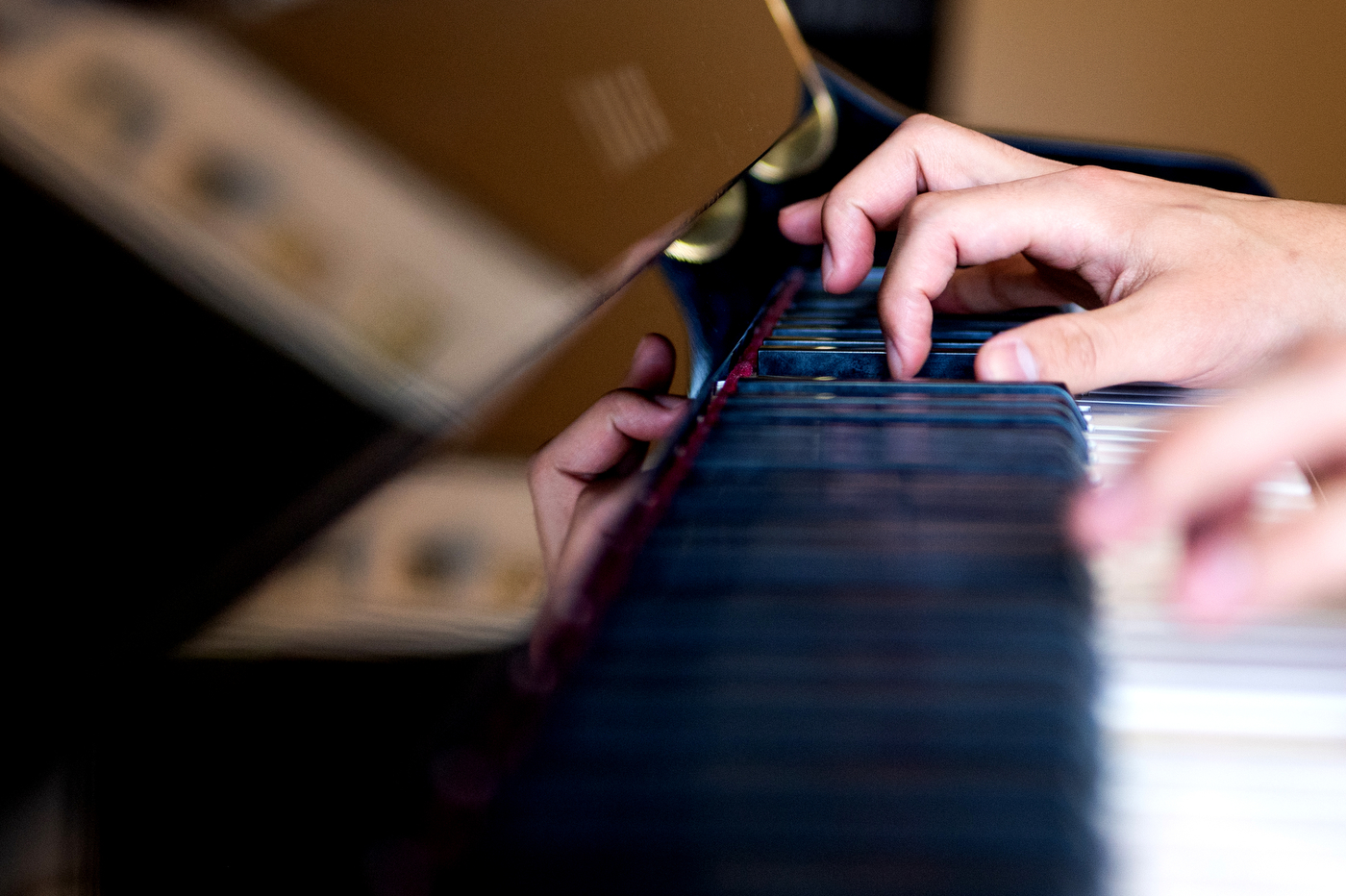
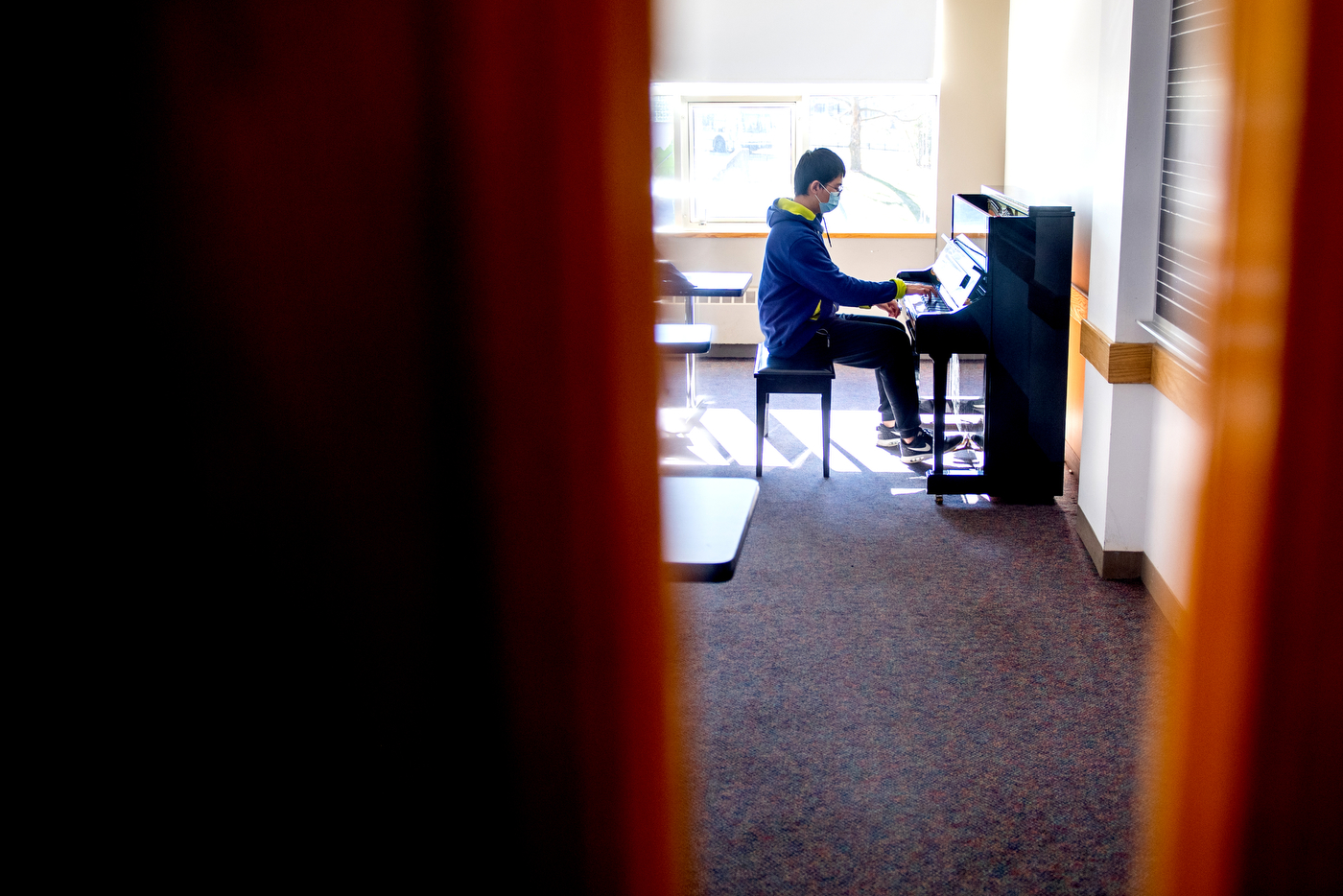
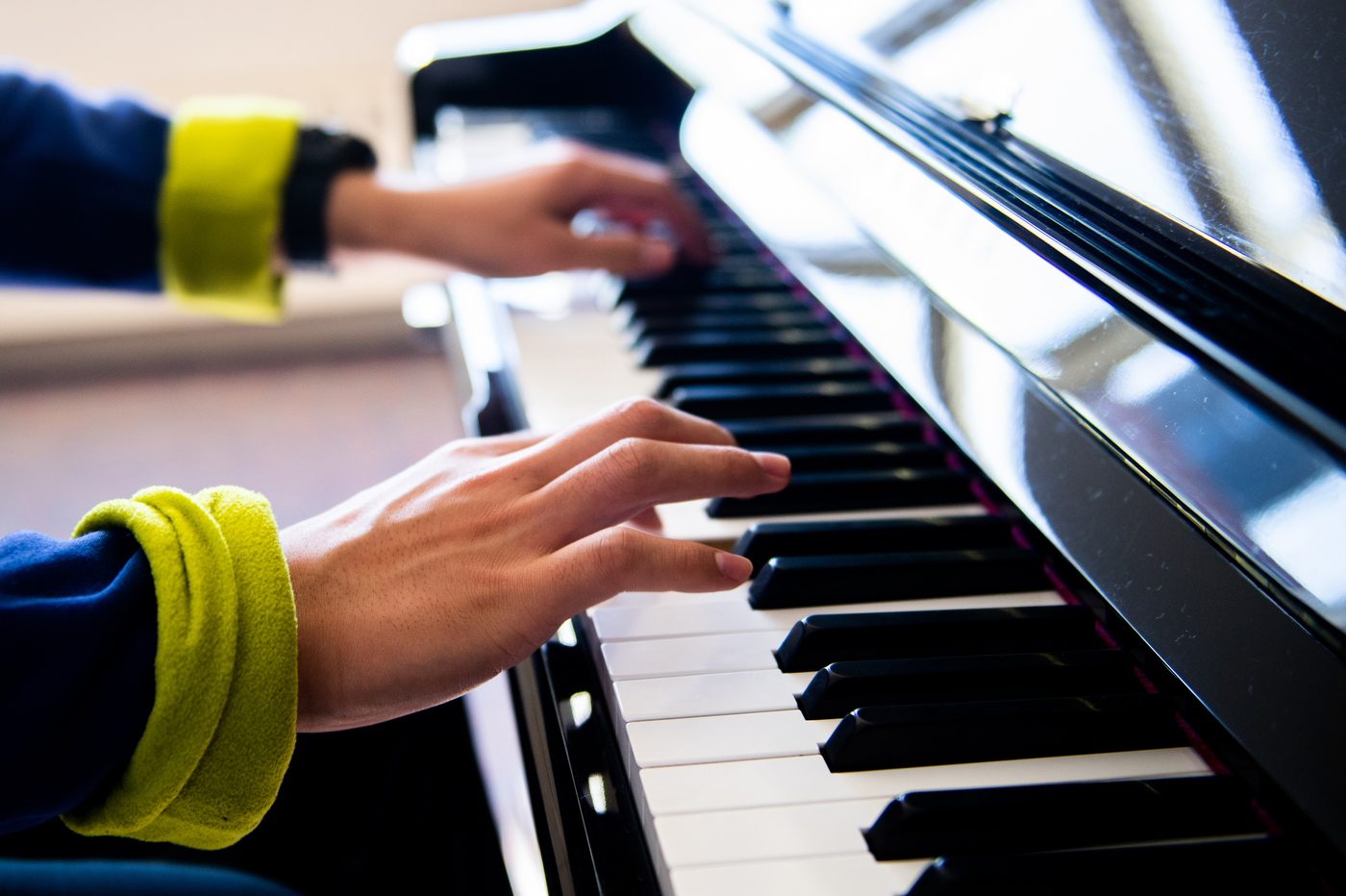
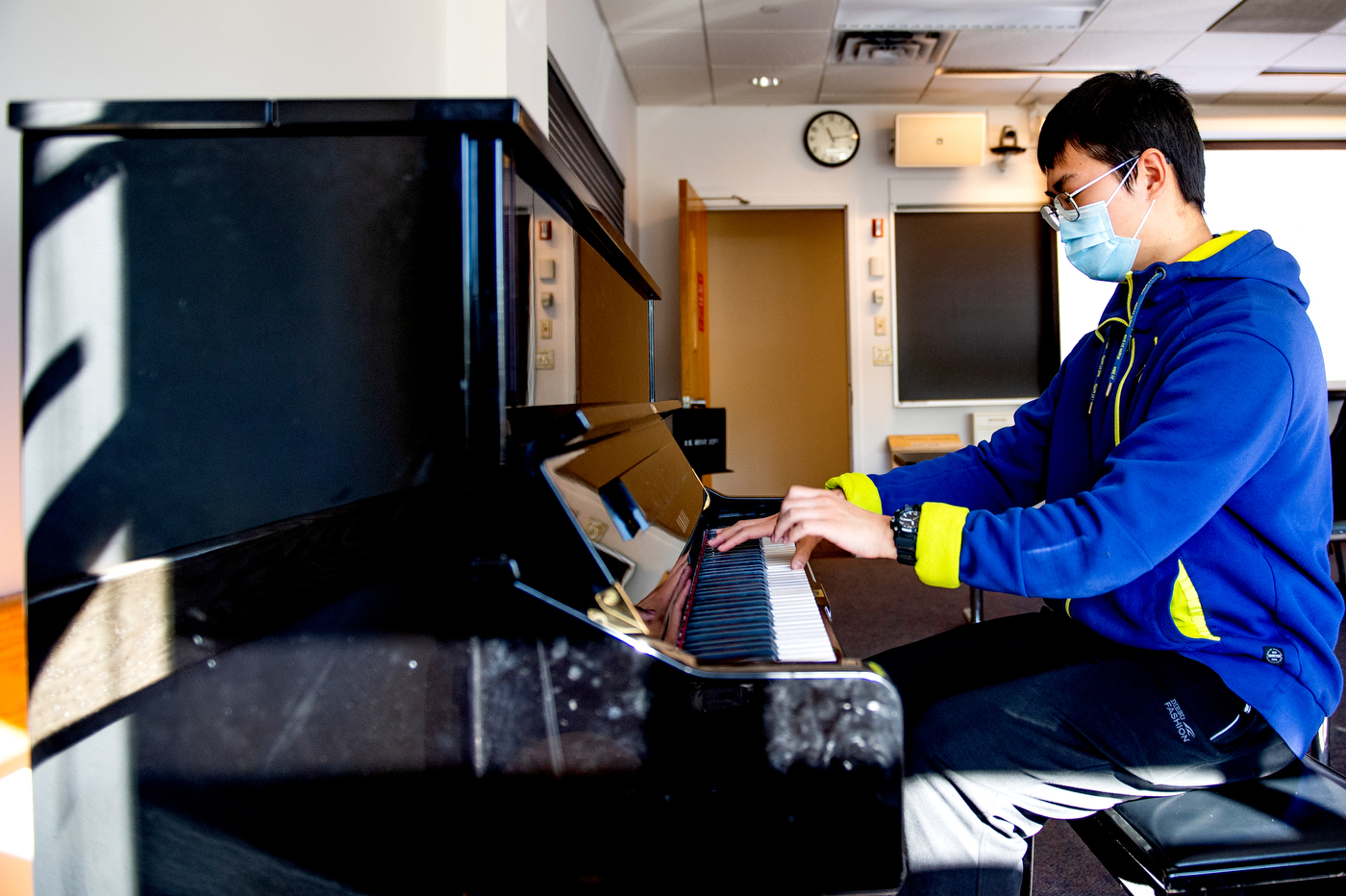
Gao, who has played the piano since he was 5, decided to combine his lifelong love of music with computer science studies in a combined major. He studies at Northeastern’s Khoury College of Computer Sciences as well as the College of Arts, Media, and Design.
The seemingly incongruent subjects are more alike than you might think, says Gao.
“In my view, both of them require profound knowledge and experience, and both help me to enhance my agility,” he says.
“Playing piano is about how you treat the notes, how you perform the music, and how you express the emotion. Computer science is about how we treat the data, and how we design the algorithms. In my view, both are stuff that are related to creativity and imagination,” Gao says.
Hubert Ho, an associate teaching professor in the music department and one of Gao’s instructors, says he’s encouraged by the wide variety of subjects that his students pursue. He’s seen students combine their music major with physics or psychology, as well as computer science.
“Students are asking fascinating questions that can be addressed by the methodologies of multiple disciplines,” says Ho. Access to the pianos at Ryder Hall has helped many on the Boston campus.
“As long as the proper safety protocols are followed, it is extremely important that pianos be made available for students to apply what they have learned in classes,” says Ho, who calls Gao by his nickname, Kevin.
“They are important for music majors, from more skilled students like Kevin, to non-pianist majors who might use the pianos to enhance their knowledge of a particular concept they’ve learned in class,” Ho says.
Gao doesn’t know what he wants to do for a living , but says there are plenty of jobs available for his combined degree. Improving speaker technology at a company like Bose is an example, or working on software that helps composers score pieces on a computer.
While Gao’s love of music came first, he’s come to love computer science as well — even if the degree wasn’t his idea.
“My parents recommended it because those skills are in high demand,” says Gao. “But now I’m pretty interested in both.”
For media inquiries, please contact media@northeastern.edu.
